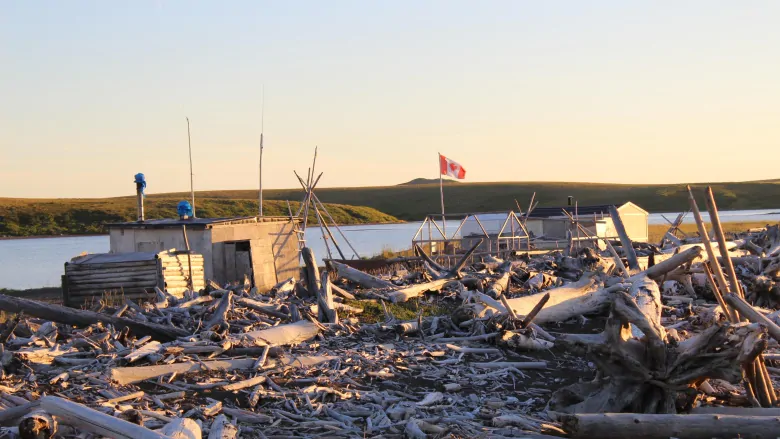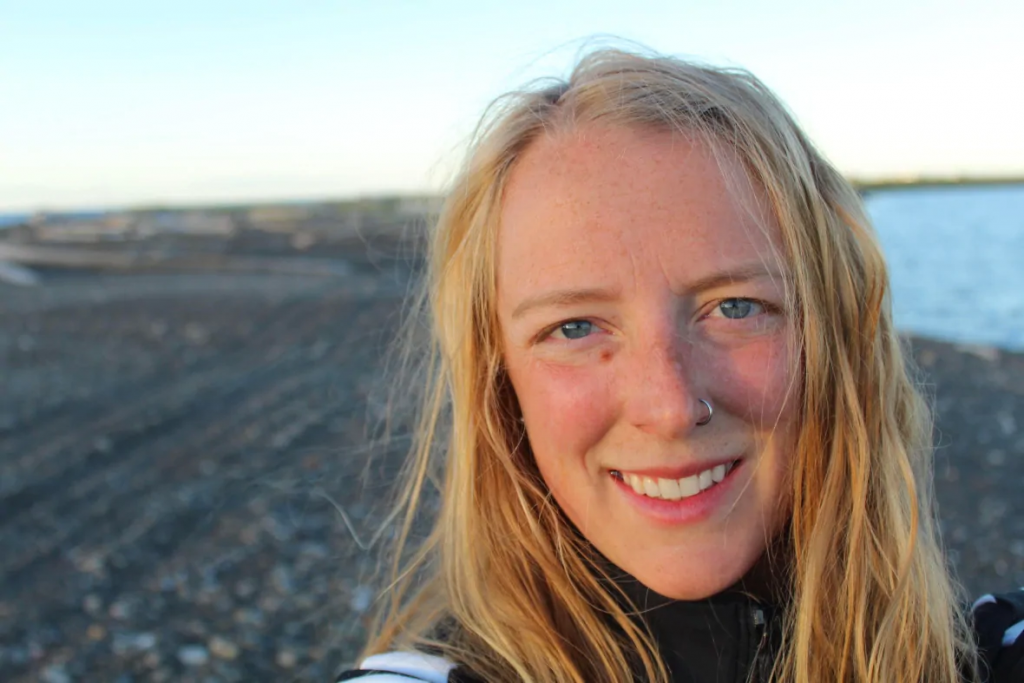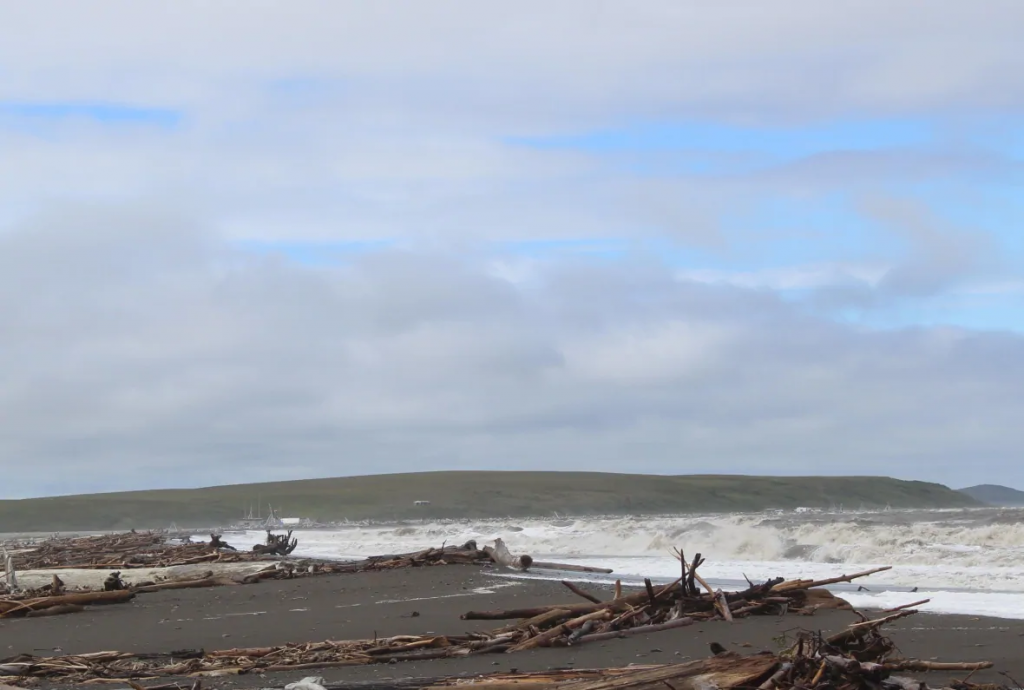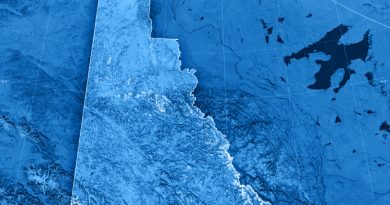Arctic’s beluga whale harvest challenged on multiple fronts in Canada

The beluga whale harvest out of Aklavik, in the Northwest Territories, is down but not out. From a high of 35 whales harvested in 1981, it has hit zero twice in the past five years.
And it’s not for a lack of whales — the population of eastern Beaufort Sea belugas remain in relative abundance at about 40,000 animals.
A recent study out of the University of Manitoba documents what’s behind the decline of the Aklavik hunt. It was a community-driven project.
“The research question was developed by Aklavik and we worked on the whole project together,” said Elizabeth Worden, a research associate with the Centre for Earth Observation Science at the University of Manitoba, and the lead author on the study.
No single factor dominates, but the challenges wrought by climate change, the death of elders and the loss of their knowledge, and the preference for modern life among some of the community’s youth have all contributed to its decline.

Aklavik is near the northern border of the Northwest Territories and Yukon. An elbow bend of the Peel River hugs the community of about 600 people, who are mostly of Gwich’in and Inuvialuit descent.
Situated inland of its traditional whaling grounds on the Beaufort Sea, it’s a four-hour boat ride through the complicated waterways of the Mackenzie River estuary of the Beaufort Delta.
Inuvialuit oral tradition says residents of the Mackenzie Delta region — which includes Aklavik, Inuvik, Tsiigehtchic, Fort McPherson, Paulatuk, Sachs Harbour, Ulukhaktok and Tuktoyaktuk — harvested hundreds of beluga whales every season along the Beaufort Sea since at least the late 1800s.
Those rates continued throughout most of the 20th century.
The whales have long been important to Inuvialuit communities. The skin and outer blubber are made into muktuk, which is a good source of nutrition in a region where the price of store-bought groceries is high.
Hunters harvested almost 100 whales every year in the region between 2000 and 2012, but Aklavik’s portion of that harvest declined over the same time.
Changing climate
Climate change has made the hunt more difficult, more expensive, and less predictable.
With the loss of West Whitefish and another camp — Running River or Aqpaȓuatchiaq — harvesters from Aklavik now rely on Shingle Point (Tapqaq). Shingle Point was where part of an eight-week fieldwork portion of the study took place in 2017.
But harvesting at Shingle Point, according to the study, has itself become more challenging because of increased use of noisy all-terrain vehicles and powerful outboard boat motors that drive the shy animals away from shallow waters closer to shore.

Not only is it expensive to buy the gas and equipment to get to Shingle Point — it can cost up to $500 in gas — but the deep-water hunt is more costly and less certain. According to the study, storms are said to be more frequent and severe than in the past.
“We have very deep waters on this side [of the Beaufort Sea],” said Michelle Gruben, the resource person for the Aklavik Hunters and Trappers Committee.
“So when the boat does go out to harvest, there might be a pod of whales, but … when they start to get to them, they dive and they go down.”
Gruben said she worked closely with Worden on the study. She is credited as a co-author.
Threats to traditional way of life
Along with climate change are the challenges presented by social change.
For youth in Aklavik, the traditional lifestyle competes with wage jobs, social media and the conveniences of modern life.
“There are some younger youth that love this traditional food,” Gruben said. “But there’s some [in the] younger generation that would rather go to the store and buy a TV dinner or sub, you know, because their parents are not showing them traditional food.
“I guess we could say Aklavik is split down the middle.”

On-the-land harvesting camps where the young and old share knowledge of the hunt are the preferred way to keep the activity alive.
Gruben said it could cost upward of $20,000 to hold a whale harvest camp with youth and elders on the land over several days.
“But there’s money out there,” she said. “It takes time to do the paperwork and find the funding and do the reporting, but it’s all worth it in the end. Even if one person came to gain the knowledge.”
Gruben said younger community members have already harvested five whales this season.
That goes to show the tradition lives on, she said.
And with it, a way of life.
Related stories from around the North:
Arctic: Arctic sea ice loss linked to spread of deadly virus in marine mammals, Eye on the Arctic
Canada: ‘They get around’: Pelicans spotted as far north as Nunavut, in Canadian Arctic, CBC News
Finland: Miners hunting for metals to battery cars threaten Finland’s Sámi reindeer herders’ homeland, The Independent Barents Observer
Greenland: Oldest Arctic sea ice vanishes twice as fast as rest of region, study shows, Eye on the Arctic
Norway: In Arctic Norway, seabirds build nests out of plastic waste, The Independent Barents Observer
Russia: Mass vaccination is underway on Russia’s Yamal tundra, The Independent Barents Observer
Sweden: Warnings in Sweden about dangerous bacteria in Baltic Sea, Radio Sweden
United States: Mass grey whale strandings may be linked to solar storms, CBC News




have you a brochure file?